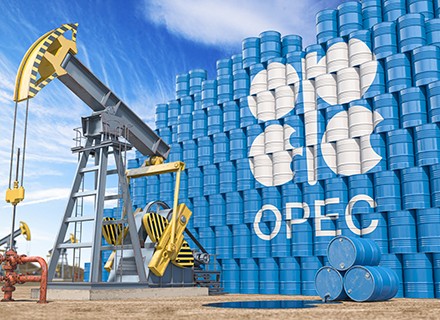OPEC has announced a delay in its plans to roll back oil production cuts as global output from major producers, especially “Big Oil” companies, reaches new highs. This decision reflects OPEC’s strategic response to the increased production levels from large oil corporations, a development that could influence oil prices and market stability. The decision comes as OPEC and its allies, collectively known as OPEC+, carefully assess market conditions to avoid any potential oversupply.
The original production cuts were introduced to stabilize oil prices following the sharp declines caused by decreased demand during the COVID-19 pandemic. As demand has gradually rebounded, OPEC initially planned to incrementally ease these cuts. However, unexpected increases in production from major oil companies have raised concerns within OPEC about a possible oversupply. The recent output surge from companies like ExxonMobil and Chevron is driven by improved efficiency and new investments, particularly in North America.
OPEC’s latest move to delay its rollback is a cautious one, intended to prevent a supply glut that could negatively impact oil prices. Saudi Arabia, a key OPEC member, has been vocal about the importance of maintaining a balanced market and has advocated for a careful approach to adjusting production levels. With global oil demand recovering slower than initially anticipated, OPEC+ believes that maintaining current production limits will better support stable pricing and market conditions.
The resurgence of Big Oil production also stems from high global demand for energy, especially as economies recover from the pandemic. With advancements in extraction technologies, oil giants have managed to increase output without proportionally raising costs. This rise in output has implications for OPEC+ members who rely on oil revenues and are cautious of how fluctuating prices may affect their economies.
Analysts suggest that OPEC’s decision to delay the rollback could lead to mixed results. On one hand, it supports oil prices by controlling supply; on the other, it may increase tensions among OPEC members who prefer higher production to benefit from rising demand. Some analysts argue that prolonged production restrictions could encourage even more output from non-OPEC producers, potentially disrupting OPEC’s influence over global oil markets.
The delay also impacts the global economy, especially in energy-reliant sectors. High oil prices, supported by controlled production, often lead to increased fuel costs, affecting industries such as transportation and manufacturing. Consumers may feel the effects as higher fuel prices trickle down to everyday goods and services. As a result, the economic impacts of OPEC’s decision reach beyond the oil sector, influencing global supply chains and inflation trends.
In conclusion, OPEC’s decision to delay its production cut rollback reflects a cautious strategy in the face of rising output from major oil companies. The organization remains committed to balancing supply and demand, seeking to stabilize the oil market in an environment where global production dynamics are constantly shifting. As the situation evolves, OPEC’s actions will continue to play a crucial role in determining oil prices and shaping the energy market in the months to come.
Read More






 Thursday, 12-02-26
Thursday, 12-02-26







